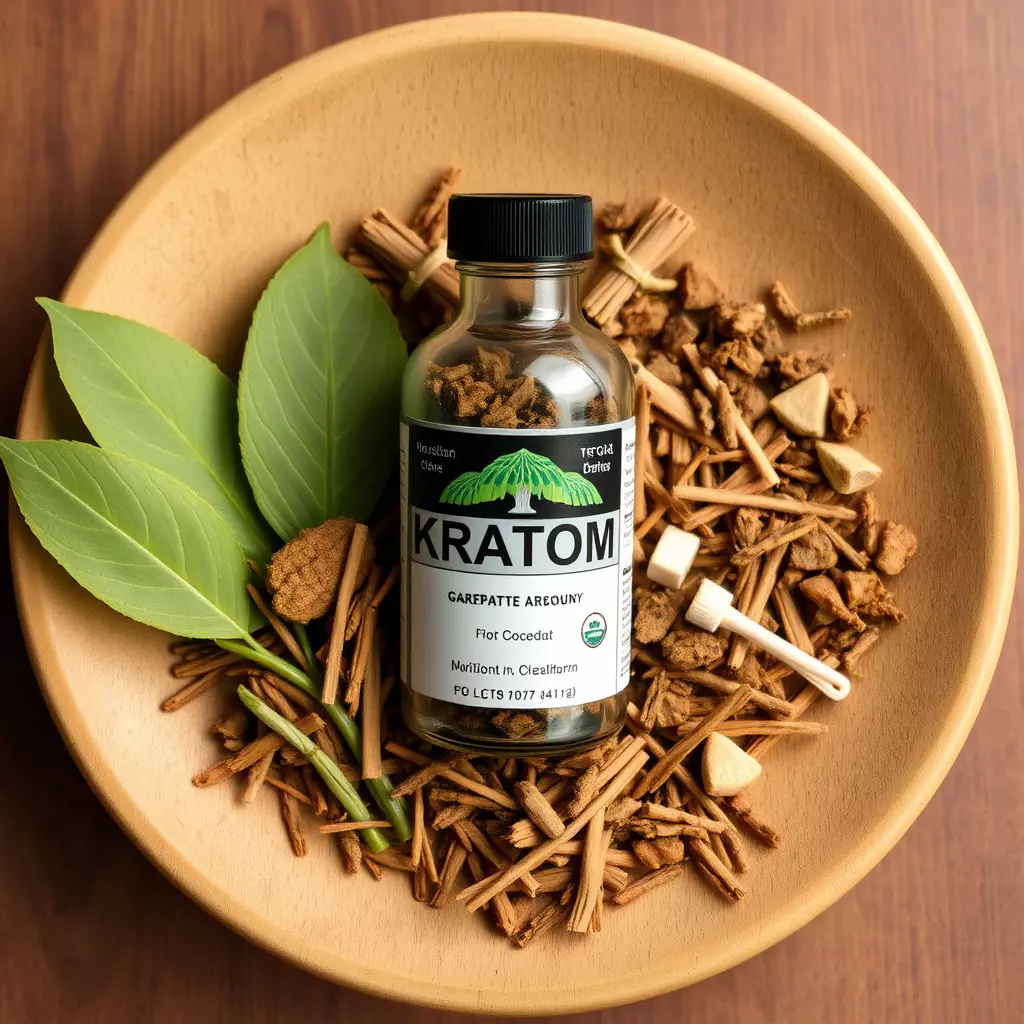Chronic fatigue syndrome (CFS) patients in Texas are exploring kratom, an herbal supplement from Mitragyna speciosa, for potential relief due to its alkaloids that might affect energy and mood. While preliminary studies and anecdotal evidence suggest its benefits for fatigue and pain often seen with CFS, kratom's legal status in Texas is complex. As of the latest information in 2023, kratom is not explicitly controlled under the Texas Controlled Substances Act, but it remains a subject of legislative scrutiny at both state and federal levels, with local regulations potentially differing from state-wide laws. Texas residents considering kratom for CFS management should consult healthcare providers knowledgeable about its legal status and therapeutic effects to ensure compliance with the law and to weigh its potential benefits against any adverse effects or risks associated with its use. It's crucial for users to stay updated on legislative changes, as these can affect the availability of kratom in Texas ("Is kratom legal in texas?").
Chronic fatigue syndrome (CFS) presents a multifaceted challenge for those affected, often leaving individuals in a relentless grip of exhaustion. Recent discussions surrounding the use of kratom as a potential management tool for CFS symptoms have surfaced, prompting Texas residents to explore this option within the realm of its legal status. This article delves into the intersection of kratom and CFS management, examining whether kratom is legal in Texas, its potential benefits, and the necessary safety considerations for Texans. We will navigate the complexities of kratom’s legality and explore its role in alleviating the debilitating symptoms associated with CFS, providing a comprehensive guide for those seeking alternative management strategies within the Lone Star State.
- Exploring Kratom's Role in Chronic Fatigue Syndrome (CFS) Management: Is Kratom Legal in Texas?
- Understanding Kratom and CFS: Potential Benefits and Considerations for Texas Residents
- Navigating Legality and Safety: Using Kratom to Alleviate Chronic Fatigue Symptoms in Texas
Exploring Kratom's Role in Chronic Fatigue Syndrome (CFS) Management: Is Kratom Legal in Texas?

MITIGATING CHRONIC FATIGUE WITH KRATOM: LEGALITY AND MANAGEMENT IN TEXAS
Chronic fatigue syndrome (CFS) presents a complex challenge for patients, often necessitating a multifaceted approach to management. Among the various strategies, kratom has emerged as a potential therapeutic option due to its alkaloid profile, which may influence mood and energy levels. Kratom, derived from the leaves of Mitragyna speciosa, has been explored for its potential effects on fatigue and pain, two prominent symptoms in CFS patients. While scientific research into kratom’s efficacy for CFS is still evolving, anecdotal reports and preliminary studies suggest that it may offer symptomatic relief for those affected.
In the context of Texas, the legal status of kratom is a critical consideration for residents exploring this as an option for CFS management. As of the current understanding, kratom is not explicitly scheduled under the Texas Controlled Substances Act. However, its regulatory future remains uncertain, with state and federal legislation subject to change. It’s important for individuals in Texas considering kratom as part of their CFS management plan to stay informed about the evolving legal landscape. This includes understanding the precise laws within their municipality or county, as local regulations can differ from state-wide statutes. Engaging with healthcare providers who are knowledgeable about both the medical applications and legal standing of kratom in Texas is crucial for safe and compliant use. This ensures that patients can potentially benefit from its effects while adhering to all legal requirements.
Understanding Kratom and CFS: Potential Benefits and Considerations for Texas Residents

For Texas residents exploring alternative management strategies for Chronic Fatigue Syndrome (CFS), understanding the role of kratom may offer a new perspective on potential relief. Kratom, a botanical derivative from the leaves of Mitragyna speciosa, has garnered attention for its diverse pharmacological properties. As of the knowledge cutoff in 2023, is kratom legal in Texas? The legal status of kratom can be complex and varies across different jurisdictions within the state; it’s imperative to consult the most current local laws before use. Kratom contains alkaloids that may influence the opioid receptors in the brain, potentially providing analgesic effects, which could benefit individuals with CFS who experience pain. Additionally, some anecdotal evidence and preliminary studies suggest that kratom might help alleviate fatigue and improve mood, both of which are common challenges associated with CFS. However, it’s crucial for Texas residents to approach kratom use with caution due to its potential psychoactive effects and the need for further scientific research to fully understand its impact on CFS symptoms. The potential benefits of kratom should be weighed against its legal status, the lack of long-term safety data, and the possibility of interactions with other medications. Individuals considering kratom as part of their CFS management plan are advised to do so under the guidance of a healthcare professional, ensuring that they are fully informed about both the potential therapeutic effects and the risks associated with its use.
Navigating Legality and Safety: Using Kratom to Alleviate Chronic Fatigue Symptoms in Texas

Navigating the legality and safety aspects of using kratom for managing chronic fatigue syndrome (CFS) in Texas is a complex task due to the evolving legal landscape and the lack of definitive scientific consensus on its effects. Kratom, derived from the leaves of the Mitragyna speciosa tree, has gained attention as a potential natural remedy for various health issues, including CFS. As of my knowledge cutoff in 2023, kratom is legal at the federal level but subject to varying state regulations. In Texas, kratom is currently legal; however, it’s classified as an abuseable substance by the Texas Department of State Health Services and cannot be sold as a dietary supplement. Users interested in exploring kratom for CFS management must be cognizant of these distinctions to ensure compliance with state laws.
Safety is another critical factor when considering kratom for alleviating chronic fatigue symptoms. The use of kratom should be approached cautiously, as it can interact with other medications and has the potential for side effects, particularly with higher doses or long-term use. Texas residents considering kratom must engage in informed usage, ideally under the guidance of a healthcare provider. This is because the optimal dosing, potential risks, and interactions with existing treatments for CFS are important considerations for overall health and well-being. It’s also crucial to stay updated on any legislative changes that may alter kratom’s legal status within Texas, as such developments could impact availability and use.
In conclusion, the potential role of kratom in managing chronic fatigue syndrome (CFS) presents a promising yet nuanced consideration for Texas residents. The exploratory analysis into kratom’s efficacy for CFS symptoms has revealed that while it may offer relief for some individuals, its use must be approached with caution due to legal and safety considerations. As established throughout this article, understanding the legality of kratom in Texas is a critical first step for those exploring this option for symptom management. It’s clear that further research is warranted to fully elucidate the benefits and risks associated with kratom use for CFS. For those in Texas contemplating its use, it is imperative to stay informed on both the legal status of kratom and the latest scientific findings to make an educated decision regarding its potential inclusion in their personal health management strategy.






